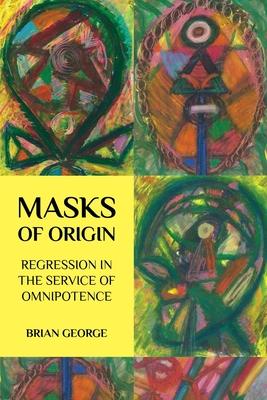Brian George's debut collection of personal essays invites the reader on a journey beyond the normal categories of space, time, and narrative structure, toward a further shore of multidimensional and more-than-human experience. These are "essays" in the sense of attempts or explorations of a subject which is too vast, and too profound, yet also, paradoxically, too familiar (to some deepest part of us) to be exhausted by any one expression or approach. As George puts it, "The book is not quite a collection of essays, or the fragments of an autobiography, or a record of inter-dimensional journeys, or a work of metaphysics, or a sociopolitical critique, or an attempt to formulate a contemporary mythology-although it has elements of all of these." To read Masks of Origin, and to re-read it perhaps, and to live with all that it reveals, conceals, and intimates, is to risk encountering the unfathomable within ourselves as much as in the art. As George recursively unravels the contours of his peculiar spiritual landscape, we begin to see aspects our own world history and generational trauma transfigured-as in a psychedelic mirror-in a startling new light. Yet the only drug administered here is the notropic of poetic language. (You may still wish to avoid operating heavy machinery while under the influence of this book.) With penetrating insight into the soul of post-industrial America and a rare ability to invoke transpersonal states of knowing (even accompanying the thrill of the unknown) in the reader, and with a metaphysical bravado that any dada surrealist might envy, there is also-how to say this?-a down-to-earthness about George that softens our defenses. In Masks of Origin, we meet the artist not only as a cosmic traveler and esoteric yogi, but also as a schoolboy, a son, a rebel, a lover, a teacher, a friend/enemy, and a family man-in short, as a person with adventurous goals but few pretenses. As we follow George in the probing of his origins, we may find that we have suddenly drawn much closer to our own.

Masks of Origin: Regression in the Service of Omnipotence
Brian George's debut collection of personal essays invites the reader on a journey beyond the normal categories of space, time, and narrative structure, toward a further shore of multidimensional and more-than-human experience. These are "essays" in the sense of attempts or explorations of a subject which is too vast, and too profound, yet also, paradoxically, too familiar (to some deepest part of us) to be exhausted by any one expression or approach. As George puts it, "The book is not quite a collection of essays, or the fragments of an autobiography, or a record of inter-dimensional journeys, or a work of metaphysics, or a sociopolitical critique, or an attempt to formulate a contemporary mythology-although it has elements of all of these." To read Masks of Origin, and to re-read it perhaps, and to live with all that it reveals, conceals, and intimates, is to risk encountering the unfathomable within ourselves as much as in the art. As George recursively unravels the contours of his peculiar spiritual landscape, we begin to see aspects our own world history and generational trauma transfigured-as in a psychedelic mirror-in a startling new light. Yet the only drug administered here is the notropic of poetic language. (You may still wish to avoid operating heavy machinery while under the influence of this book.) With penetrating insight into the soul of post-industrial America and a rare ability to invoke transpersonal states of knowing (even accompanying the thrill of the unknown) in the reader, and with a metaphysical bravado that any dada surrealist might envy, there is also-how to say this?-a down-to-earthness about George that softens our defenses. In Masks of Origin, we meet the artist not only as a cosmic traveler and esoteric yogi, but also as a schoolboy, a son, a rebel, a lover, a teacher, a friend/enemy, and a family man-in short, as a person with adventurous goals but few pretenses. As we follow George in the probing of his origins, we may find that we have suddenly drawn much closer to our own.